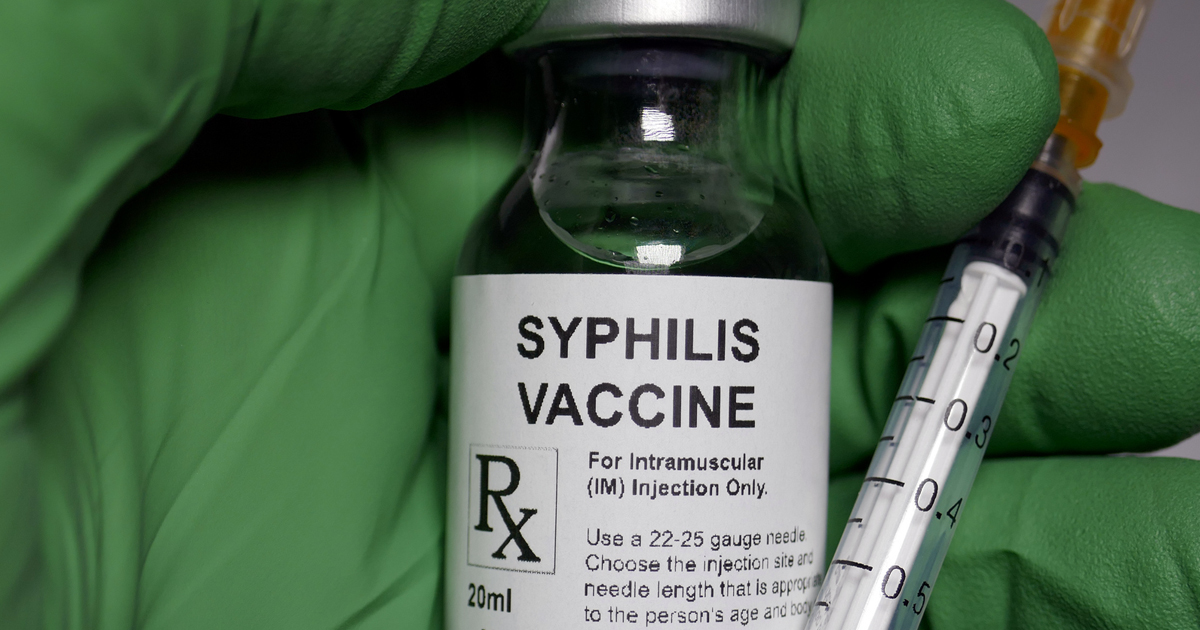The rise of antimicrobial resistance (AMR) has set alarm bells ringing for public health officials globally. From gonorrhoea to chlamydia, infections that were once treatable with antibiotics are now becoming harder to combat. Among them, syphilis is a growing concern. Syphilis, an ancient scourge, is making a comeback—particularly alarming due to its resistance to standard treatments.
But there’s hope on the horizon: a potential syphilis vaccine. In this article, we’ll explore the global rise in syphilis cases, the role of AMR, cutting-edge research on the Treponema pallidum bacterium, and the role vaccines could play in controlling the infection. We’ll also focus on how Singapore can take action through regular STD testing and awareness.
The Alarming Rise of Syphilis and the Threat of Antimicrobial Resistance
Syphilis, caused by the bacterium Treponema pallidum, has plagued humanity for over 500 years. Once thought to be largely under control due to effective treatments like penicillin, syphilis is again on the rise globally. In the United States, for example, there were over 200,000 cases of syphilis reported in 2022, a figure that hasn’t been seen since the 1950s. Many other countries, including those in Europe and Asia, are seeing similar spikes.
But what’s driving this resurgence? One factor is the decline in sexual health awareness and prevention strategies. More concerning, however, is the rise of AMR. As syphilis bacteria become resistant to certain antibiotics, treating the infection has become more challenging. Some studies indicate that variations in Treponema pallidum strains across different regions could play a role in this resistance.
Antimicrobial resistance threatens to turn back the clock on decades of medical progress, making once-treatable infections potentially lethal. That’s where vaccines come in.
The Search for a Syphilis Vaccine: Genomic Diversity of Treponema pallidum
Recent research into the genetic makeup of Treponema pallidum is shedding new light on vaccine development. A global study, conducted across four continents—China, Colombia, Malawi, and the United States—has offered valuable insights into the bacterium’s genetic diversity. The goal? To identify stable proteins on the bacterium’s surface that could be targeted by a vaccine.
This is groundbreaking because Treponema pallidum is notorious for evading the immune system. Its outer membrane proteins frequently shuffle, making it difficult for the immune system—or potential vaccines—to recognize and attack it. However, by mapping the bacterium’s genetic variations, researchers hope to identify proteins that remain stable enough to be effective vaccine targets.
Moreover, the inclusion of underrepresented regions like Africa and South America in this genetic survey has enhanced our understanding of syphilis strains globally. This diversity of samples is crucial for designing a vaccine that works across multiple regions, given the differences in strains.
How Vaccines Could Change the Game for STI Prevention
Why is a syphilis vaccine so vital? For one, it would offer a preventative measure for a disease that often goes unnoticed until it’s too late. Syphilis is notorious for its “stealth mode” in the early stages, where symptoms like sores may be overlooked or mistaken for other infections. If left untreated, it can cause severe complications, including damage to the heart, brain, and nervous system. Congenital syphilis—transmitted from mother to child during pregnancy—remains a significant concern, with devastating consequences for newborns .
A syphilis vaccine would not only prevent the disease but also reduce its transmission, helping to combat rising STI rates globally. Singapore, like many countries, has seen an uptick in syphilis cases. With a vaccine, we could reduce the number of people requiring treatment, alleviating the strain on healthcare systems and curbing the need for antibiotics—thus limiting the impact of AMR.
The Importance of AMR, STI Management, and Early Detection
While we wait for vaccine development to advance, prevention and early detection remain critical tools in fighting syphilis and other STIs. AMR continues to jeopardize traditional treatment methods, making regular testing essential for controlling infections before they become untreatable.
In Singapore, accessing services like STD testing is easier than ever. Early detection is key to preventing long-term complications. For those concerned about potential exposure to syphilis or other infections like gonorrhoea, chlamydia, or HIV, regular testing ensures infections are caught early and treated before complications arise.
Moreover, using preventative measures like HIV PrEP and HIV PEP can help individuals at higher risk. If syphilis can be diagnosed and managed early, patients can avoid the use of more powerful antibiotics, thus reducing the spread of AMR.
For people who test positive, there are a range of STD treatments available to help manage symptoms and reduce transmission risk.
Public Health Implications for Singapore
In Singapore, the rise of syphilis cases and the threat of AMR require immediate attention. Public health efforts should focus on:
- Education and Awareness: Many people still misunderstand syphilis, its transmission, and its risks. Clear messaging around prevention, testing, and treatment is essential.
- Increasing Testing and Vaccination Research: Regular STD testing should be encouraged as part of a proactive approach to sexual health.
- Strengthening Preventive Measures: Encouraging safer sex practices, promoting the use of condoms, and ensuring high-risk individuals are informed about HIV PrEP and PEP.
While a syphilis vaccine may still be a few years away, there is much Singapore can do in the meantime to combat the rise of STIs and the looming threat of AMR.
What’s Next? Protecting Against Syphilis and AMR
Vaccines offer a future where the growing threat of antimicrobial resistance doesn’t overshadow our ability to treat infections like syphilis. Until then, prevention, testing, and treatment will remain our best defences against this ancient scourge.
At Shim Clinic, we encourage everyone to take proactive steps in their sexual health journey. If you’re concerned about STIs or the risks posed by antimicrobial resistance, visit our clinic for advice, testing, and treatment.
Stay informed, stay tested, and stay safe.

